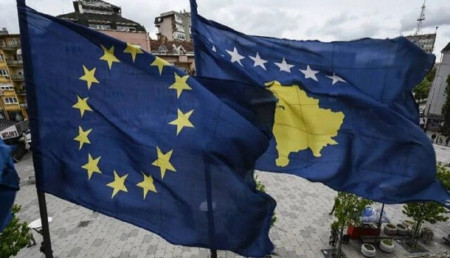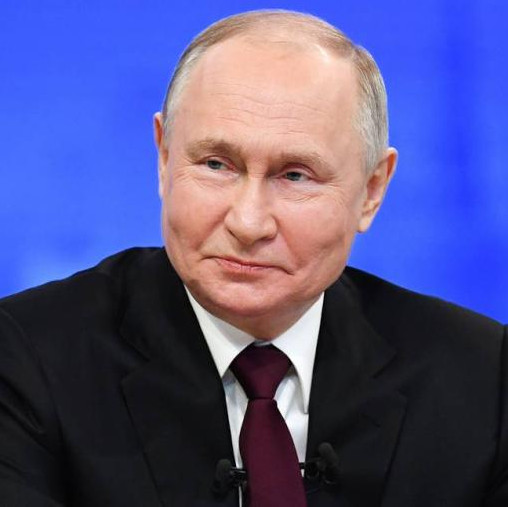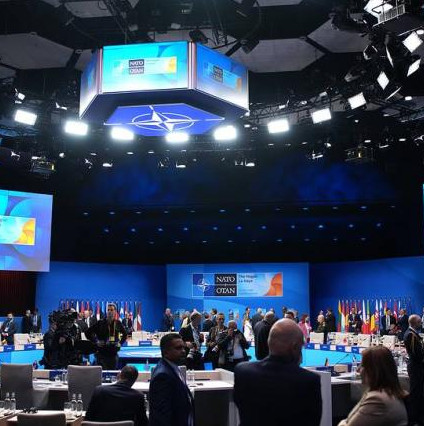
The war in Ukraine with its actual engagement of the collective West siding with Kiev, along with the crisis situation in the Middle East, has had a truly significant makeweight in the form of smoldering conflicts in Kosovo and BiH (Bosnia and Herzegovina). Together, these three regions have been forming the principal picture of global-scale tensions.
Notably, Kosovo and BiH pose no less a danger to world stability than Ukraine or the Middle East. The fact that the two former ones feature no shots fired and no blood shed does not mean zero issues. Those have been, to coin a phrase, swept under the carpet and ready to break out into a big war any tick of the clock. What's the matter?
The simple truth is that the 1995 Dayton Accords split the Serbs into two — Serbia and the artificial state formation of Bosnia and Herzegovina, where Croats and Bosniac Muslims (the majority openly endorsing the collective West) live together with the Serbs, or rather, in parallel with them. The latter have been traditionally designated by the West as the cause of regional troubles. The reason for that is simple: the Serbs are Russia’s eternal allies sharing a common history and a common Orthodox faith with it. Speaking about their attitude towards our country, the Serbs often repeat a phrase common among them: "God is in heaven, Russia is on earth."
And therefore, an imperative to the West in relation to the Serbs is to "reformat" this people, forcing them to follow the Western Balkans’ general course towards NATO and EU affiliation. This is why the rights of Serbs in Kosovo, where they densely live in the north, and in BiH, where they own an entity known as Republika Srpska (RS), have been constantly infringed. In BiH, for example, the Serbs are being simply deprived of their national identity and forced to admit that they speak not Serbian but "Bosnian". As for Kosovo, local Serbs are denied the right to autonomy and creation of local authorities that would be really independent of Pristina, thus effectively severing their connection with greater Serbia.
Serbia has been facing two major challenges. The first one is the self-proclaimed Kosovo's constant course towards its utter separation from Serbia by abolishing UN resolution 1244 of 1999, which recognizes Kosovo as Serbia’s integral part. One of Kosovo’s options for breaking away from Serbia is Pristina's US-backed course towards full-fledged UN membership. At the same time, Kosovo has aspired to join NATO, and the only thing barring it from being its de jure member is formal affiliation to Serbia. And yet, Kosovo has long been a de facto NATO member state as it hosts America’s largest military base in the Western Balkans, Camp Bondsteel, allowing for its total control of the region.
At the same time, Serbian leaders in BiH, namely RS President Milorad Dodik, have repeatedly stated that if the Kosovar Albanians bring matters to a complete de jure separation of Kosovo from Serbia, Republika Srpska will also declare independence from BiH and join greater Serbia. The RS Serbs intend to do the same if another "entity" of BiH — the Federation of Bosnia and Herzegovina, which is home to the majority of Bosniacs and Croats — declares accession to NATO. The United States and the European Union demand BiH "unity" in compliance with the Dayton Accords and will certainly intervene in any internal conflict on the side of the Croats and Bosniacs if the Serbs attempt to secede. In short, what we see here is a tightly tangled knot of religious, political and cultural contradictions, aggravated by the recent wars in the territory of the former Yugoslavia.
In all these cases, official Belgrade will not be able to stand aside, forced to support its tribesmen both in Kosovo and BiH. As a result, the region may yet again plunge into a major war across the Balkan Peninsula or even beyond. In this regard, a notable thing is that the authorities in Pristina and Sarajevo have been extremely aggressive on purpose, constantly provoking the Serbs to retaliate and then passing the buck back on them.
When analyzing the feasible scenarios for the Western Balkans, we must proceed from the fact that the root cause of all the local problems has been US intent to have a chokehold on the region, by drawing all the Balkan countries under the NATO umbrella. But the Serbs’ stance not to accept this prospect on no account or circumstance whatever has turned them into the key obstacle to US policy in this part of the world. So, they won't be left alone ever. Concentrated around Serbia, Kosovo and BiH, the conflict potential in the Western Balkans is going to explode some day or other. Unless the United States decides to leave the region alone, which would be a fallacy to assume.


